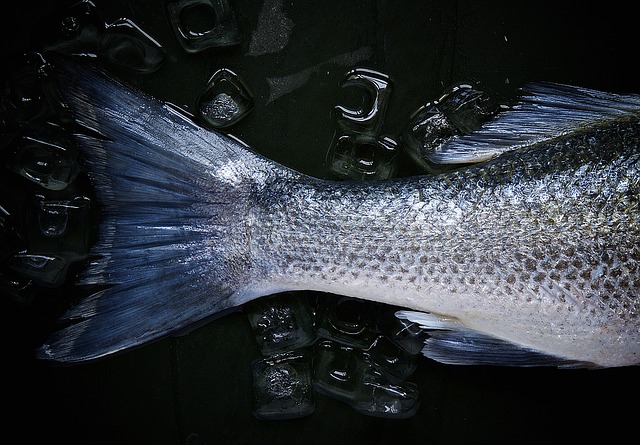February 27, 2017
Aquaculture investor, David Tze, has announced the launch of the Tze Venture Search Fund for Aquaculture Technology – a new fund dedicated to backing and growing aquaculture feed innovations in the aquafeed ingredients sub-category.
Tze announced the launch of the fund, which is aiming to acquire a single aquaculture technology to operate and grow, at the F3 Fish-Free Feed Challenge meeting in San Francisco this January, stating, “The new fund will do entrepreneurship through acquisition.”
Since the first months of 2016, Tze has leveraged his expertise in the sector and his network of private investors in aquaculture technology, but more specifically, in alternative protein ingredients for aquaculture feeds. After months of evaluation, he has narrowed the field to four potential alternative proteins. Although the ingredients themselves have not been revealed, the technological fields from which they derive include genetics, primary nutrient production, and value-added processing. Of the candidates, one is a distressed patent portfolio, one is a solo investor, and two are companies.
“The recent alternative ingredients for aquaculture meeting hosted by the Fish-Free Feed Challenge is the most recent and visible signal of coalescing interest in our area,” said Tze. “While I predict our ultimate ingredient will improve both fish-bearing and fish-free feeds, the F3 Challenge served as final confirmation of the top priority of this alternatives sub-category for my search fund.”
Tze is a veteran investor in the aquaculture space, having directed the aquaculture venture fund, Aquacopia Ventures I.
Founded in New York in 2005, Aquacopia invests in aquaculture innovations spanning the value chain, from feed technologies, to equipment, to farms, and distribution and marketing companies. Targeting Series A rounds and follow-on investments, Aquacopia has built a portfolio of six companies that includes Open Blue – the creator the largest open-ocean mariculture system in the world for the production of cobia; Futuna Blue, a land-based operation that produces novel marine aquaculture species including the Bluefin “sushi tuna,” seriola and sole; and Earth Ocean Farms, a vertically integrated marine fish farming company operating on an 84-acre offshore ocean site.
Pressure Driven Innovation
Rising global populations and increasing wealth – particularly in emerging economies, along with diminishing wild fish numbers have put pressure on the aquaculture industry to fill the gap in supply. This pressure has also filtered down to the aquaculture feed category. These factors and the recent approval by the EU and Canada clearing insect protein for use in fish feed, have driven innovators to search for and develop alternative ingredients to replace fish meal with the goal of increasing sustainability and reducing costs for the industry and its producers.
“The issue is the increasing amount needed by populations moving into higher economic classes, like in China and India,” Mike Rust, science coordinator for the Office of Aquaculture of the National Oceanic and Atmospheric Administration, told Impact Alpha in October 2015. “The issue is about looking forward.”
Others in the Space
These factors have been drivers behind two strategic moves by Cargill to enter the aquaculture feed space. Within little more than a month’s time in 2015, the company partnered with Altor Fund III and Bain Capital Europe III to acquire global salmon feed leader, EWOS for €1.35 billion, and announced it has formed a joint venture with Naturisa, Ecuador’s second largest shrimp producer and fourth largest exporter, to build a $30 million shrimp feed facility near Guayaquil, Ecuador. Under the terms of the deal for EWOS, Cargill acquired seven production facilities, one each in Chile, Scotland, Canada, and Vietnam, and three in Norway, and two state-of-the-art research and development centers located in Chile and Norway. Also, through the joint partnership with Naturisa, the new mill, which is scheduled to be operations this year, will have the capacity to produce 130,000 tons of feed per year.
Other companies and startups developing alternative aquaculture feed protein sources include Biomar, which recently announced in December that it had agreed to acquire 100 percent ownership of Chinese fish feed company, Haiwei, through BioMar-Tongwei Biotech, its 50/50 joint venture with China’s Tongwei; Ynsect, a Paris-based mass-scale breeder and producer of insects for the livestock, fish and pet feed markets which raised a $15.2 million Series B in December 2016; and Calysta, a sustainable, biological fish and livestock feed developer and producer that has closed on a $30 million Series C round of funding which included Cargill, Dutch pure-play sustainable aquaculture investment firm, Aqua-Spark, the Municipal Employee Retirement System (MERS) of Michigan, Old Westbury Global Real Asset Fund LLC, Walden Riverwood Ventures, and Pangaea Ventures.
-Lynda Kiernan
Lynda Kiernan is Editor with GAI Media and daily contributor to GAI News. If you would like to submit a contribution for consideration please contact Ms. Kiernan at lkiernan@globalaginvesting.com

Let GAI News inform your engagement in the agriculture sector.
GAI News provides crucial and timely news and insight to help you stay ahead of critical agricultural trends through free delivery of two weekly newsletters, Ag Investing Weekly and AgTech Intel.




